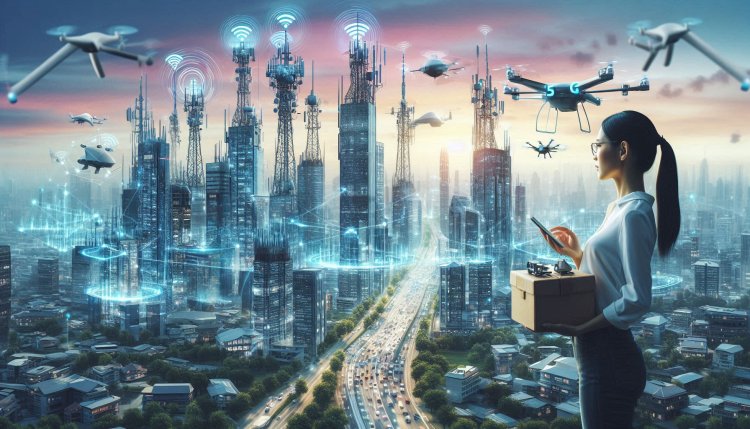5G Technology
Discover the latest advancements in 5G technology, revolutionizing connectivity with faster speeds, lower latency, and enhanced network capabilities.

5G Technology
5G technology is the next generation of mobile internet connectivity, offering faster speeds, more reliable connections, and a wide range of exciting new features and capabilities. It is designed to revolutionize the way we use and interact with technology, enabling a host of new applications and services that were previously not possible with older generations of cellular networks.
Key Features of 5G Technology
5G technology offers several key features that set it apart from previous generations of mobile networks:
- Higher Speeds: 5G offers significantly faster download and upload speeds compared to 4G, with the potential to reach speeds of up to 10 gigabits per second. This allows for quick and seamless streaming of high-definition video, faster downloads of large files, and improved overall performance for a wide range of applications.
- Low Latency: 5G technology reduces latency, or the time it takes for data to travel from one point to another, to as low as 1 millisecond. This low latency is crucial for real-time applications such as virtual reality, online gaming, and autonomous vehicles, where even a small delay can have significant consequences.
- Increased Capacity: 5G networks can support a significantly higher number of connected devices per square kilometer compared to 4G, making it ideal for the growing number of Internet of Things (IoT) devices and smart technologies that require constant connectivity.
- Improved Reliability: 5G technology offers improved reliability and stability, with better coverage and fewer dropped connections, even in crowded areas with high network traffic.
- Network Slicing: 5G networks support network slicing, which allows operators to create multiple virtual networks within a single physical network infrastructure. This enables customized connectivity solutions tailored to specific applications and industries, such as healthcare, manufacturing, and transportation.
Applications of 5G Technology
5G technology has the potential to revolutionize a wide range of industries and applications, opening up new possibilities for innovation and growth. Some of the key applications of 5G technology include:
- Smart Cities: 5G technology can enable the development of smart cities with connected infrastructure, smart transportation systems, and efficient energy management solutions that improve the quality of life for residents and reduce environmental impact.
- Healthcare: 5G networks can support remote monitoring, telemedicine, and real-time data analysis, enabling better patient care, faster emergency response times, and more efficient healthcare delivery systems.
- Autonomous Vehicles: 5G technology is essential for the development and deployment of autonomous vehicles, providing the low latency and high reliability needed for safe and efficient communication between vehicles and infrastructure.
- Industrial IoT: 5G networks can power the Industrial Internet of Things (IIoT), enabling smart factories, predictive maintenance, and real-time monitoring of equipment and processes to improve productivity and efficiency in manufacturing and other industries.
- Augmented Reality (AR) and Virtual Reality (VR): 5G technology enables immersive AR and VR experiences with high-resolution graphics and real-time interactions, opening up new possibilities for entertainment, gaming, education, and training.
Challenges and Considerations
While 5G technology offers many benefits and opportunities, there are also challenges and considerations that need to be addressed in its deployment and implementation:
- Infrastructure Requirements: Deploying 5G networks requires significant investment in infrastructure, including the installation of new base stations and antennas to support the higher frequencies and capacity of 5G technology.
- Security Concerns: 5G networks raise security concerns due to the increased attack surface and potential vulnerabilities in the network infrastructure and connected devices. Ensuring robust security measures is essential to protect against cyber threats and data breaches.
- Regulatory Compliance: Regulatory frameworks and standards for 5G technology vary across different regions and countries, requiring coordination and alignment to ensure interoperability and compliance with legal requirements.
What's Your Reaction?















